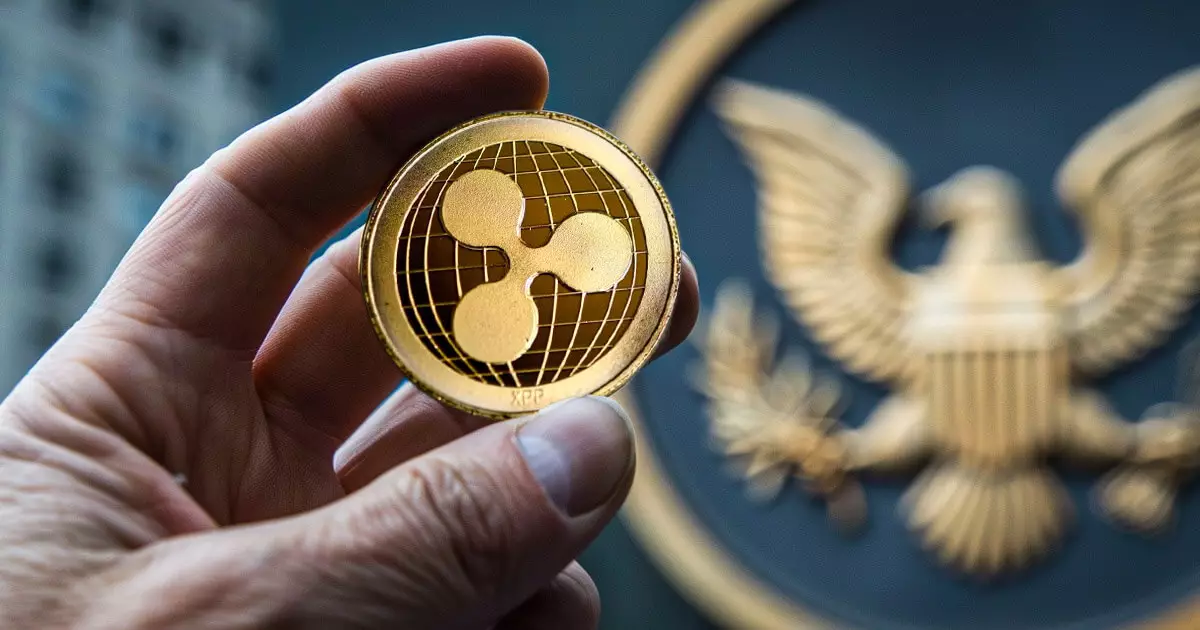The ongoing legal tussle between Ripple Labs and the US Securities and Exchange Commission (SEC) has captured the attention of the financial world, particularly as it pertains to cryptocurrency regulations. As of mid-October 2023, Ripple has filed a notice of cross-appeal in response to the SEC’s own appeal against a significant court ruling that could reshape the future of digital assets in the United States. This complex legal scenario is emblematic of the struggles faced by emerging technologies in an environment often defined by outdated regulatory frameworks.
The root of the conflict dates back to December 2020, when the SEC accused Ripple of unlawfully facilitating unregistered securities sales of its XRP token, leading to claims amounting to $1.3 billion. Much of Ripple’s defense revolves around the differentiation between its sales strategies. In July 2023, Judge Analisa Torres of the US District Court for the Southern District of New York ruled that while institutional sales of XRP were indeed violations of securities laws, programmatic sales—those made to retail investors—were not. This dichotomy is integral to the ongoing legal proceedings and Ripple’s latest cross-appeal filed on October 10.
Ripple’s response to the SEC’s appeal emphasizes a desire to ensure that all potential legal remedies are explored. Ripple’s chief legal officer, Stuart Alderoty, described the objective succinctly: “We want to ensure that nothing is left on the table.” This proactive stance highlights Ripple’s determination to safeguard its interests while simultaneously contesting any interpretations of XRP as a security throughout its various distribution channels.
At the crux of the cross-appeal is a substantial financial penalty imposed on Ripple—$125 million—which, although markedly lower than the SEC’s initial demand of nearly $2 billion, still represents a significant burden for the company. Ripple had proposed a mere $10 million as an acceptable civil penalty, showcasing the vast chasm between the SEC’s and Ripple’s perspectives on the severity of the company’s alleged misconduct.
Ripple’s leadership, including CEO Brad Garlinghouse, has characterized the SEC’s approach as one of “regulation by enforcement.” He argues that the SEC’s actions contribute to a chaotic and unclear regulatory environment for cryptocurrency innovation within the United States. Garlinghouse’s rhetoric echoes frustrations felt by many in the crypto space who advocate for clearer, more coherent guidelines regarding digital assets. His statements convey a sense of urgency; the time for decisive and fair regulation is now.
What’s at stake in this legal saga transcends Ripple itself. The outcome of these appeals could set significant precedents for how digital assets are classified and governed in the United States. As Ripple pushes back against the SEC’s assertions, the implications for similar companies and projects loom large. If the courts ultimately side with Ripple on the classification of XRP, it could pave the way for more innovation in the sector, as clarity might inspire confidence among investors and developers alike.
However, the SEC’s arguments are not to be dismissed lightly. The agency’s persistent pursuit of regulatory enforcement, backed by legal precedent, poses a formidable challenge for Ripple. The growing complexities of crypto assets, illustrated by the nature of XRP and its use cases, bring into question the capabilities of existing regulatory frameworks to keep pace with technological advancements, thus complicating the landscape even further.
As the legal proceedings progress, the broader conversations surrounding cryptocurrency regulations will continue to unfold. The clash between Ripple and the SEC serves as both a pivotal moment for Ripple Labs and a microcosm of the larger battle for regulatory clarity in the cryptocurrency sector. In a world where innovation often moves faster than legislation, the resolutions achieved by Ripple and the SEC could not only redefine Ripple’s business operations but could also echo across the industry, influencing how regulators and industry players navigate the complex and often turbulent waters of cryptocurrency regulation in the years to come.















